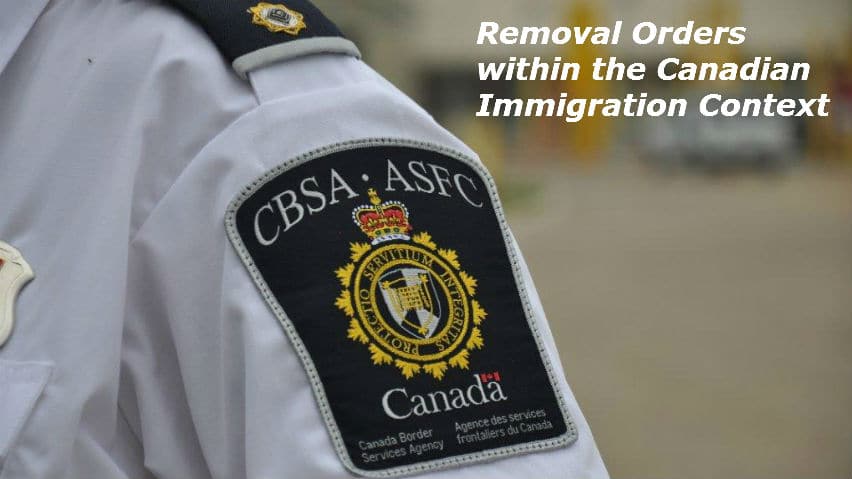
Definitions and overview
A foreign National and a permanent Resident can be determined to be inadmissible on several grounds including staying in Canada beyond their authorized period of stay (expired visa or permit). Citizenship and Immigration Canada has a list of inadmissibility categories on their website which are:
- security reasons, including
- espionage
- subversion (attempts to overthrow a government, etc.)
- violence or terrorism, or
- membership in an organization involved in any of these
- human or international rights violations, including
- war crimes
- crimes against humanity
- being a senior official in a government engaged in gross human rights violations or subject to international sanctions
- committing a serious crime that would be punishable by a maximum prison term of at least 10 years in Canada
- having been convicted of a crime, including driving while under the influence of drugs or alcohol.
- organized crime, including membership in an organization that takes part in organized criminal activity, people smuggling or money laundering
- health grounds – if their condition is likely to:
- endanger public health or public safety, or
- cause excessive demands on health or social services (some exceptions exist)
- financial reasons – if they are unable or unwilling to support themselves and their family members
- misrepresentation, which includes providing false information or withholding information directly related to decisions made under the Immigration and Refugee Protection Act (IRPA)
- failure to comply with any provision of IRPAor
- having an inadmissible family member.
A finding of inadmissibility of a permanent resident or Foreign National in the Canadian Immigration context often results with a removal order. Canada’s Immigration system is governed by the Immigration and Refugee Protection Act as well as the Immigration and Refugee Protection Regulations.
There are three types of removal orders which are departure orders, exclusion orders and deportation orders (Regulation 223 of the IRPR). It is important to note that departure and exclusion orders are reserved for less serious violations of the Immigration Law.
Departure Orders
A departure order is a document issued to a foreign national stating that the individual must leave Canada within 30 days of the order becoming enforceable. If the foreign national fails to leave Canada within that time frame, the departure order will become a deportation order which has serious consequences for returning to Canada. There are exceptions to the departure order becoming enforceable such as cases where the individual appeals a decision or is being detained.
If the individual complies with the departure order, they will not need an authorization to return to Canada whereas a deportation order will require an Authorization to return (see below for a brief overview on the Authorization to return application).
Exclusion Orders
When it comes to exclusion orders there exists two types: exclusion orders issued for a one-year period; and exclusion orders that carry a two-year bar from entering Canada. In cases of misrepresentation you may be barred from entering Canada for five years.
An exclusion order obliges the foreign national to obtain a written authorization in order to be able to return to Canada during the period of exclusion.
Deportation order
Deportation orders are issued in the cases of more serious violations of the Immigration Law of Canada. As discussed above, departure orders can become deportation orders if the individual failed to comply with the order.
Once a deportation order is issued an Authorization to Return will be required to return to Canada.
Authorization to Return to Canada Application
If you have been the subject of a removal order from Canada you will probably need an Authorization to Return to Canada (ARC) if you want to return. Whether you need one depends on the type of removal order that was issued.
If you are applying for a visa or permit to come to Canada you must include all of the required documents with your application, including:
- a Temporary Resident Visa
- two passport size photographs taken within the last six months.
- a copy of your passport.
- a written letter (in English or French) explaining, in detail, the reasons you feel you should be allowed to return to Canada. The letter must be written in block letters in black ink or typed.
- the processing fee
If your departure order became a deportation order because you did not leave Canada within 30 days of the date the departure order was issued, you must explain the reasons you did not leave Canada in the allotted amount of time.
If you are required to re-pay any costs related to your removal from Canada, you will be told the amount when your application is being processed.
If you must attend an interview or if additional documents are required, you will be notified in writing. You will also be notified in writing of the final decision in your case.
For more information about the authorization to return to Canada after a removal order is issued visit Citizenship and Immigration Canada’s website.
Conclusion
We have seen the three types of removal orders that are issued within the Canadian Immigration context. If you require assistance with any related immigration matter contact the Chaudhary Law Office.
*Relevant legislative sections: section 42, 52 of the Immigration and Refugee Protection Act and Regulation 223 to 243 of the Immigration and Refugee Protection Regulations.
